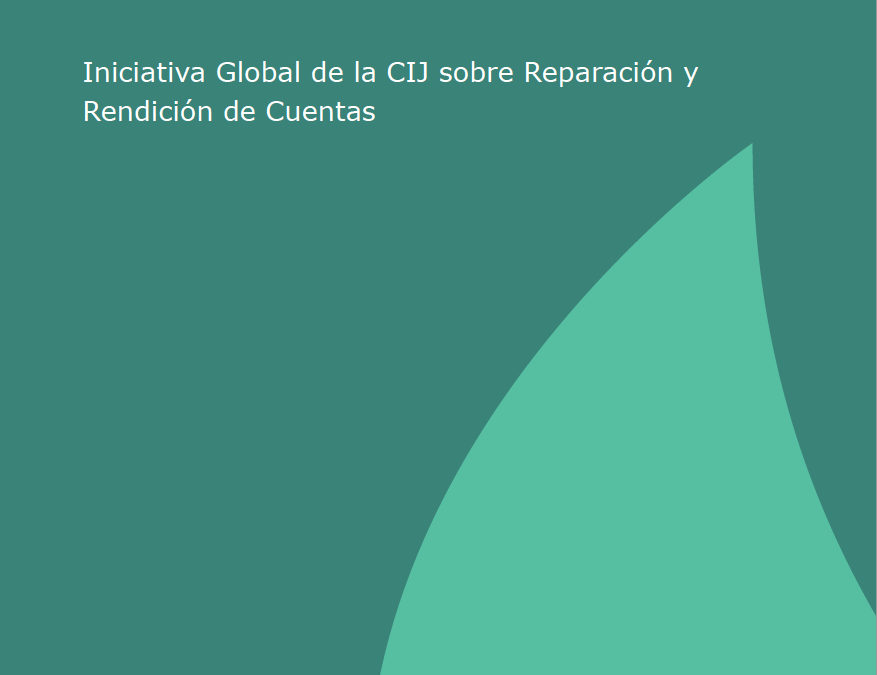
May 12, 2021
La CIJ ha encontrado que Perú ha fallado de manera persistente en la investigación, judicialización y sanción de los responsables de desapariciones forzadas y las ejecuciones extrajudiciales que se han cometido en el país, según los hallazgos contenidos en un informe que hoy se publica.
El estudio de línea de base Perú: Desapariciones Forzadas y Ejecuciones Extrajudiciales, Estudio de línea de base identifica obstáculos que impiden la rendición de cuentas penal en casos de graves violaciones de derechos humanos en Perú, en particular por crímenes internacionales cometidos durante el conflicto armado interno (1980-2000).
Al respecto, el Secretario General de la CIJ, Sam Zarifi, afirmó que “no puede haber paz sostenible sin justicia y rendición de cuentas. Acabar con la impunidad requiere la implementación decidida de mecanismos judiciales y no judiciales”.
De igual manera, Zarifi remarcó que “es preocupante que la agenda de derechos humanos no sea una prioridad para el gobierno nacional o para el sistema de justicia. Por esto, dado que pronto habrá elecciones presidenciales, es crucial que el nuevo gobierno adopte medidas para priorizar los derechos humanos en las políticas públicas, particularmente aquellas encaminadas a mejorar la rendición de cuentas en materia penal, así como la reparación plena y efectiva de los derechos de las víctimas”.
En el informe, la CIJ concluyó que, en el contexto de impunidad por las graves violaciones de derechos humanos que existe en Perú, los derechos de las víctimas no son garantizados a pesar de estar reconocidos en el marco jurídico nacional. En efecto, el sistema de justicia penal ha dictado menos de 100 sentencias en casos de violaciones de derechos humanos relacionados con el conflicto armado.
La cifra es sorprendentemente baja dado que las violaciones y los abusos fueron generalizados y sistemáticos durante el conflicto. Por ejemplo, solo en relación con las ejecuciones extrajudiciales, la Comisión de la Verdad y Reconciliación documentó 7.334 casos. Y en el caso de la desaparición forzada, la Dirección General de Búsqueda de Personas Desaparecidas ha documentado 21.793 casos.
La Línea Base también expone otros desafíos, como la falta de implementación de los programas de reparación, el lento avance en la búsqueda de personas desaparecidas y el deficiente marco jurídico nacional respecto de la regulación del uso de la fuerza por parte de la Policía.
Adicionalmente, el documento ofrece recomendaciones para que se mejore la protección de los derechos de las víctimas por parte de las autoridades. Entre estas recomendaciones están:
- Mejorar la investigación y el enjuiciamiento de las graves violaciones de derechos humanos. Para ello, entre otras medidas, Perú debe designar jueces y fiscales dedicados exclusivamente a la investigación y el juzgamiento de estos delitos. Además, la Fiscalía debería considerar un enfoque de investigación más sistemático que le permita identificar patrones delictivos, en lugar de un enfoque caso por caso.
- Garantizar los derechos de las víctimas durante el proceso penal. Las autoridades judiciales deben garantizar que las víctimas puedan participar en cada etapa del proceso penal. Esto es particularmente importante en las audiencias virtuales. De manera similar, las víctimas deben tener acceso efectivo a asesoría legal desde las primeras etapas del procedimiento penal.
- Mejorar la búsqueda de personas desaparecidas. El gobierno nacional debe proporcionar recursos humanos y financieros suficientes para que la Dirección General de Búsqueda de Personas Desaparecidas cumpla con su misión de manera adecuada. Al mismo tiempo, la Dirección y la Fiscalía de la Nación deben fortalecer sus acciones de coordinación. Igualmente, se deben realizar mayores esfuerzos de promoción y divulgación de los contenidos de la Ley de búsqueda de personas desaparecidas (Ley 30470) entre las víctimas.
Antecedentes
Este informe se produjo como parte del proyecto regional de la CIJ “Promoviendo justicia para ejecuciones extrajudiciales y desapariciones forzadas en Colombia, Guatemala y Perú”, patrocinado por la Unión Europea. El informe está disponible en español.
La CIJ ha monitoreado durante varios años las leyes, políticas y prácticas relacionadas con la investigación y el enjuiciamiento de graves violaciones y abusos de los derechos humanos en el Perú, incluidas las desapariciones forzadas y las ejecuciones extrajudiciales. Lo anterior como parte de su esfuerzo para promover la rendición de cuentas, la justicia y el estado de derecho en el mundo.
El proyecto se implementa bajo la Iniciativa de Rendición de Cuentas de la CIJ, que también ha producido informes para Colombia, Eswatini, Nepal, Myanmar, Venezuela, Cambodia, Tajikistan y Tunisia.
Contacto:
Kingsley Abbott, Director de la Iniciativa Global de Rendición de cuentas de la CIJ. Email: kingsley.abbott@icj.org
Carolina Villadiego Burbano, Asesora Legal para América Latina y Coordinadora regional del proyecto. Email: carolina.villadiego@icj.org
Rocío Quintero M, Asesora Legal para América Latina de la CIJ. Email: rocio.quintero@icj.org
Peru-GRA-Baseline-Study-Publications-Reports-Thematic-reports-2020-SPA
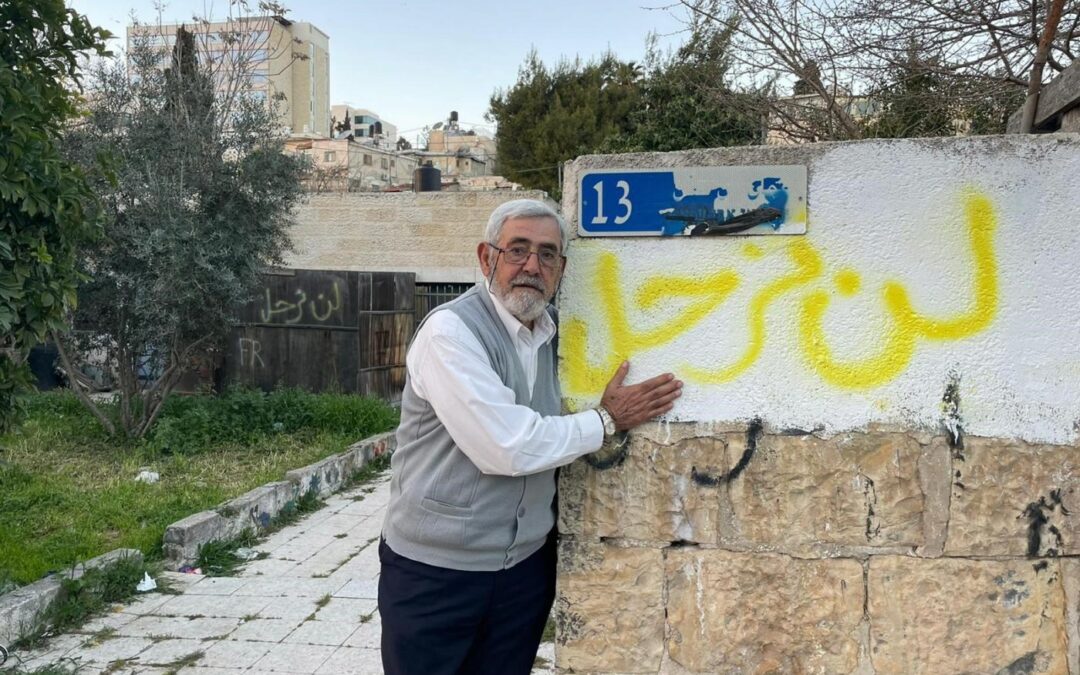
May 11, 2021 | News
The International Criminal Court (ICC) must immediately investigate the forced eviction of Palestinian families and residents in Sheikh Jarrah and other neighbourhoods in East Jerusalem, as well as any indiscriminate and disproportionate attacks against civilians in the Gaza Strip, the ICJ said today.
The investigation must establish whether any serious violation of international humanitarian law, such as indiscriminate or disproportionate attacks against civilians, the forced deportation of Palestinians and the transfer of Israeli settlers into occupied East Jerusalem, as well as the extensive destruction and appropriation of property, have taken place in Sheikh Jarrah and in Gaza. Following the opening of an investigation by the ICC Office of the Prosecutor, if warranted, Israeli officials should be prosecuted for such crimes to ensure accountability. As confirmed by the ICC Pre-Trial Chamber I, the Court’s territorial jurisdiction “extends to the territories occupied by Israel since 1967, namely Gaza and the West Bank, including East Jerusalem.”
Evictions against Palestinians in Sheikh Jarrah were ordered by the Jerusalem District Court following legal proceedings initiated by Israeli settlers organizations under Israeli law. The Supreme Court was due to rule on 10 May 2021 on challenges against evictions brought by Palestinian families, yet, it decided to postpone the hearing at the request of Israel’s Attorney-General.
“Evictions in Sheikh Jarrah are part of a cynical campaign by the Israeli authorities to purge occupied East Jerusalem from its Palestinian civilian population,” said Said Benarbia, the ICJ MENA Director.
The ICC must also ensure accountability for unlawful attacks targeting civilians and civilian objects in connection to the hostilities between Israel and Palestinian armed groups in Gaza. Since 2007, Israel has imposed a full closure on Gaza, which has resulted in a major humanitarian crisis, and has led to significant escalation of hostilities in 2008-09, 2012 and 2014, where thousands of Palestinians have been killed and injured. On 10 May 2021, Hamas started firing rockets against Israel following a crackdown on Palestinian worshippers in the al Aqsa compound in Jerusalem. In response, Israel has carried out multiple airstrikes in Gaza, which have reportedly caused the death of at least 24 people, including nine children. All parties to the conflict are prohibited from conducting indiscriminate and disproportionate attacks, which may amount to war crimes under the Rome Statute.
“The ICC must ensure that all those responsible for ordering and carrying out these attacks be held criminally accountable,” Benarbia added.
Since April 2021, Palestinians peacefully demonstrating against the evictions in Sheikh Jarrah, a decades-long legal battle, have been subjected to violence by Israeli settlers and Israeli security forces. Earlier this year, the Jerusalem District Court ordered that several Palestinian families be evicted from the neighborhood. According the UN Office of the High Commissioner for Human Rights, “at least 218 Palestinian households in East Jerusalem, including the families in Sheikh Jarrah, have eviction cases filed against them”, and overall “970 people, including 424 children, [are] at risk of displacement.”
As part of the Israeli crackdown on Palestinians, Israeli security forces have also been firing tear gas and employing other less-lethal weapons against people praying at the Al Aqsa mosque in Jerusalem purportedly in crowd-control operations. According to the Palestinian Red Crescent, more than 200 demonstrators have been injured as a result of the use of such less-lethal weapons.
Israeli forces have also been preventing gatherings of Palestinians at Damascus Gate in East Jerusalem during the night hours of the month of Ramadan when many Muslims gather for prayer and breaking of the fast at sunset, and have responded with excessive force to the ensuing demonstrations.
Israel has a duty to respect the right to peaceful assembly and freedom of religion of Palestinians in East Jerusalem. Israel’s use of excessive force against Palestinian demonstrators and the crackdown on Palestinian worshippers violate its obligations under international human rights law
“Israeli authorities must respect and ensure the right of Palestinians to protest and challenge decades of prolonged unlawful occupation and related abusive practices, and immediately end the use of disproportionate and unlawful force to disperse protesters”, Benarbia said.
Contact
Said Benarbia, Director, ICJ Middle East and North Africa Programme, t: +41-22-979-3817; e: said.benarbia(a)icj.org
Asser Khattab, Research and Communications Officer, ICJ Middle East and North Africa Programme, e: asser.khattab(a)icj.org
You can read this press release in Arabic here or download a PDF version of it in English here.
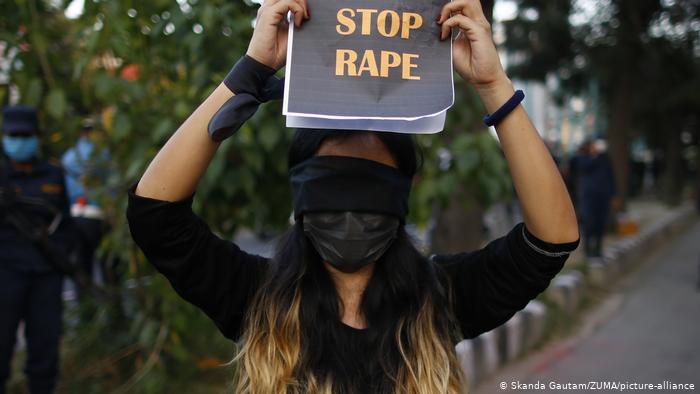
Mar 30, 2021
An opinion piece by Laxmi Pokharel and Boram Jang, International Commission of Jurists Legal Advisors on Access to Justice for Women
In February 2021 hundreds of demonstrators in Kathmandu dressed in white mourning clothes and staged a mock funeral depicting the “death of justice” in Nepal. It came as a response to a lack of prompt and effective investigation in the rape and killing of a teenage girl. Bhagirathi Bhatta, 17, went missing on 4 February while she was going home from school. Her body was found a day later in a gorge near her village in Baitadi district in western Nepal. There was good evidence to suspect that she had been raped and then strangled.
Similar cases of killings after rape or sexual violence of minors have been reported over the past few years in Nepal and most of the perpetrators remain at large. The rape and killing of Nirmala Panta is another example. Despite public outrage, leading to several days of protests in Kanchanpur, those responsible for the case are yet to be identified. There has been a pattern of police negligence and abuses in the investigation, including the alleged mishandling of evidence and the wrongful arrest after which an innocent person was coerced to “confess” to the crime. Meanwhile, the actual perpetrator has so far escaped justice. This impunity enables not only the perpetuation of similar violence but also erodes public trust in the justice system.
Nepal’s Culture of Impunity for Rape and sexual violence
Nepalese society has been witnessing widespread sexual and gender-based violence (SGBV) against women for a long period of time. The increased number of cases of SGBV against women, including rape cases, in recent years is not just a matter of criminal law. Women who are subjected to SGBV are denied the right to a dignified life, reflected in the guarantees of the Nepalese Constitution and law and international human rights instruments.
The 2015 Constitution guarantees the rights against sexual violence as a fundamental right. The Article 38(3) states, “No woman shall be subjected to physical, mental, sexual, psychological or other forms of violence or exploitation on grounds of religion, social, cultural tradition, practice or on any other grounds. Such act shall be punishable by law, and the victim shall have the right to obtain compensation in accordance with the law.”
Nepal’s Penal Code has recently increased the sentence to those involved in rape from seven-year to life imprisonment. Sex without consent, including marital rape, is also criminalized by the Criminal Code of Nepal, consistent with international law. Despite the Constitutional guarantees, instances of rape are increasing in Nepal. Many cases of rape and sexual violence go unreported to police because of social stigma, lack of trust in the justice system, and lack of protection of victims. Even so, the statistics in 2019/20 police received reports of 2144 cases whereas 1480 cases were reported in 2017/18. In addition, there has been a spike in rape cases during the COVID – 19 pandemic, including a gang rape of a migrant woman in quarantine.
Media reports show that police are reluctant to file First Information Reports (FIRs) in many rape cases. Where a case is registered, victims are often compelled to involve in the out of court settlement, especially in those cases where such crimes are committed by people in power or committed by those under their protection. The few women who decide to fight for justice do not find usually a favorable environment in the State institutions, including the police stations and courts, due to prevalent social- cultural attitudes internalizing gender stereotypes.
Impunity for perpetrators contributes to perpetuation of sexual and GBV in Nepal. During her visit to Nepal in 2018, the UN Special Rapporteur on violence against women also expressed grave concern about reports suggesting that numerous cases related to sexual violence and the killing of women and girls had resulted in impunity for the perpetrators, despite referrals to the police or a court for redress.
In 2017, the National Human Rights Commission organized a public event inviting different stakeholders that describing how past impunity perpetuates present impunity. Despite credible evidence, those cases of rape and sexual violence during conflict, hardly any case has been thoroughly investigated with the objective of bringing those responsible to justice.
The refusal of State authorities to acknowledge the prevalence of SGBV during the conflict is reflected in the way it defined victims for the interim relief program (IRP). For example, the victims of SGBV and torture are excluded from the definition of conflict victims having access to IRP. This exclusion continues to be reflected in other policies of the state.
Statute of Limitation for Rape is Unreasonably Short
Statute of limitation often prevents women from accessing justice, as it has been made unreasonably short in the Penal Code. The statute of limitation for rape and other forms of sexual violence does not factor in the fear and stigma faced by victims.
Furthermore, although the statute of limitation period for rape and other forms of sexual violence has recently been extended from 35 days to one year in the Penal Code, this period is still too short. The Committee on the Elimination of Discrimination Against Women, in its 2018 concluding observation on Nepal’s sixth periodic report, raised concerns about the statute of limitations, underscoring that failed to take into account the stigma that women and girls face when reporting cases of sexual and gender-based crimes. The Committee said it fosters impunity for such crimes and recommended that the Government “repeal the statute of limitations provisions on the registration of cases of sexual violence in all contexts to ensure effective access for women to justice for the crime of rape and other sexual offences.”; However, the statute of limitation remains on the books in Nepal’s Criminal Code.
The statute of limitations does not comply with Nepal’s obligations under international law, and in particular, disregards the situation of children who are victims of rape and who will typically need more time to tell their stories. Although the law does not require victims to file an FIR as the police can initiate investigation ex-officio, hardly any cases have been investigated by police without victims having themselves reported the case. Thus, too short statute of limitation periods for rape cases impedes access to justice for survivors, particularly in relation to child victims who may find it difficult to raise a complaint before they reach the age of majority and for whom the long-lasting effects of rape and sexual violence are especially acute.
Furthermore, this extended time period still prevents victims of rape during the armed conflict to file cases against perpetrators, because these incidents have occurred more than a decade ago. Many of those instances of rape were crimes under international law that cannot be subject to statutes of limitations. Therefore, the statute of limitations for filing a rape case is contrary to the right to an effective remedy as ensured by Article 2(3) of the International Covenant on Civil and Political Rights (ICCPR).
The Government has taken some positive steps, including an amendment to laws, providing provision for fast track system while handling VAW cases, but the gap between the formal protection and the efforts to provide justice in reality continue to hinder access to justice for victims.
To ensure access to justice for victims and survivors of SGBV and end the culture of impunity, the Government should repeal the statute of limitations provisions on the registration of cases of sexual violence in all contexts, including cases relating to rape and sexual violence perpetrated during the conflict. Those committing SGBV should not be offered political protection and the willful negligence of police to investigate crimes must lead to the accountability of the responsible police officers providing the possibility of reinvestigation on the case.
Furthermore, the Government should also take necessary measures for the effective implementation of a provision of fast track court and continuous hearing in SGBV case to end lengthy and ineffective court procedures. While these measures alone will not bring an end to the scourge of rape and sexual violence, they are a critical first step in bringing redress to survivors.
First published in The Himalayan Times in English and Nagarik News in Nepali.
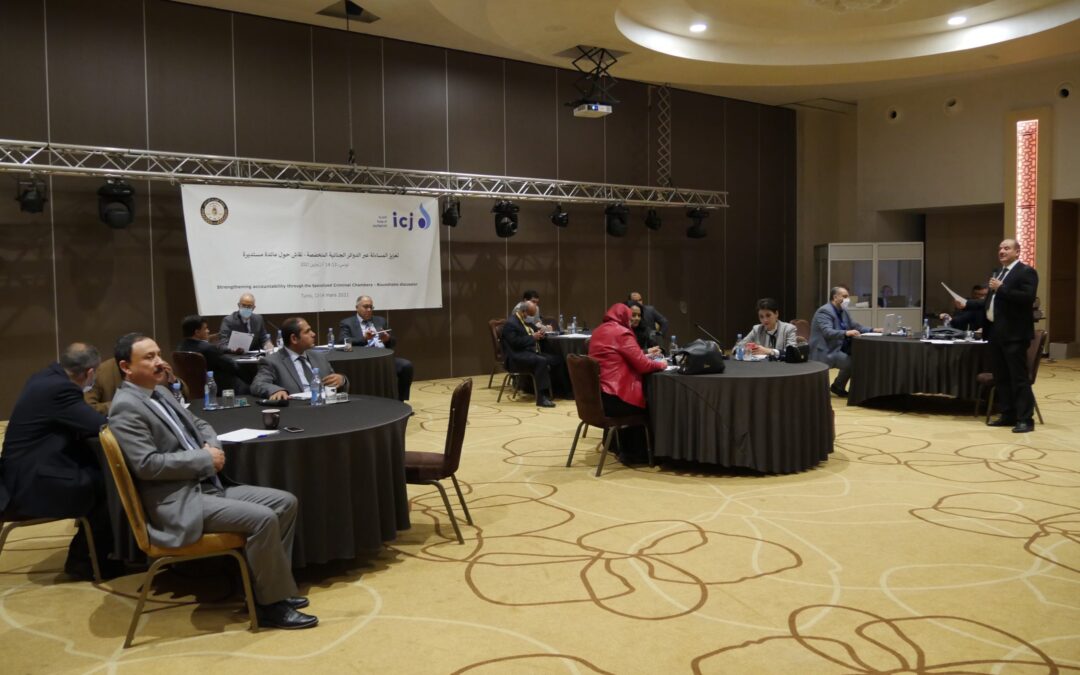
Mar 19, 2021 | Advocacy, News
On 13 and 14 March 2021, the ICJ and the Association of Tunisian Magistrates (AMT) organized a roundtable discussion in Tunis to assist Specialized Criminal Chambers (SCC) judges and prosecutors to advance accountability and justice in line with international law and standards.
Participants discussed in-depth the ongoing challenges to the fair and effective prosecution and adjudication of gross human rights violations before the SCC. They also examined joint approaches to address these challenges with a view to enhancing the fairness and effectiveness of the SCC proceedings and achieving accountability in turn.
At the roundtable, Said Benarbia, ICJ’s MENA ProgrammeDirector, underlined that SCC trials should enable victims to obtain redress and reparation, while ensuring the defendants’ right to a fair trial in compliance with Tunisia’s obligations under international law. Anas Hmedi, the President of the AMT, highlighted the key role that the SCC play in relation to the discovery of the truth, accountability and guarantees of non-recurrence of gross human rights violations in Tunisia.
Martine Comte, ICJ France Commissioner,stressed the importance of finding joint approaches and reinforcing coordination among the SCC to address the various challenges that that they are currently facing. Kalthoum Kennou, ICJ Tunisia Commissioner, called for the development ofjoint approaches to ensure victims’ participation at SCC trials and enhance support for the transitional justice process.
In light of the roundtable discussion, participants identified joint solutions and agreed to develop a set of recommendations targeting the High Judicial Council and its role in supporting the SCC and resolving the practical obstacles that might impede their work.
The roundtable is part of the ICJ’s efforts to enhance the SCC’s capacity to adjudicate the cases referred to them by the Truth and Dignity Commission (IVD) in a manner consistent with international law and standards.
Contact
Valentina Cadelo, Legal Adviser, ICJ Middle East and North Africa Programme, e: valentina.cadelo(a)icj.org
Asser Khattab, Research and Communications’ Officer, ICJ Middle East and North Africa Programme, e: asser.khattab(a)icj.org
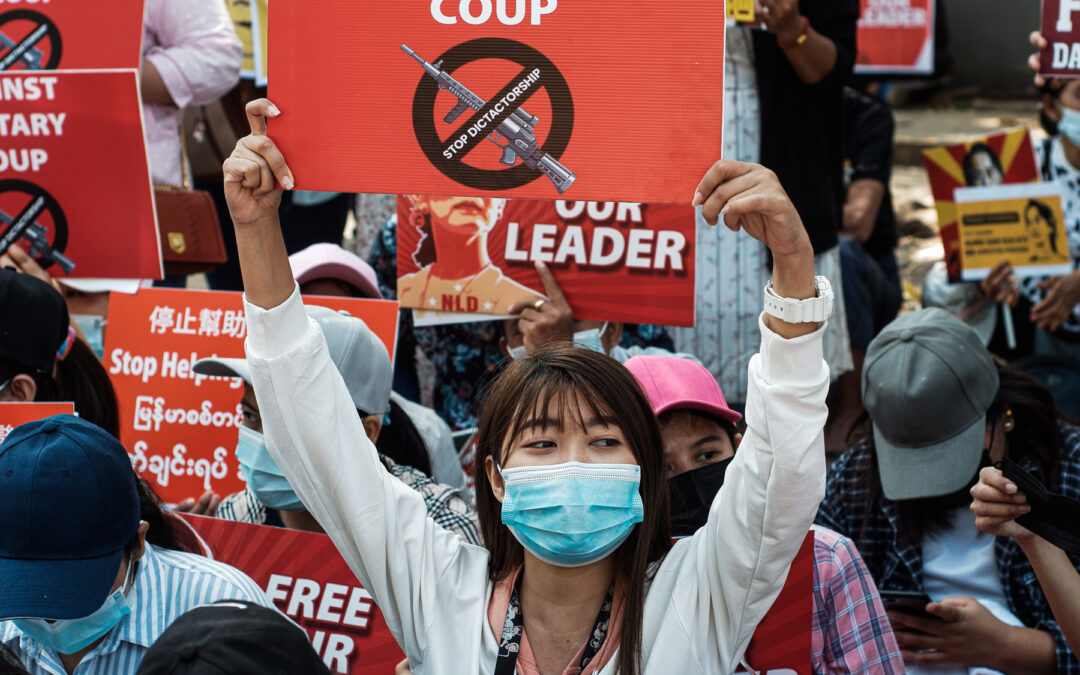
Mar 17, 2021 | News
Imposition of Martial Law in several areas of Myanmar subjects civilians to trial by military tribunals, a dangerous escalation of the military’s repression of peaceful protests, said the ICJ today.
“Use of martial law marks the return to the dark days of completely arbitrary military rule in Myanmar. It effectively removes all protections for protestors, leaving them at the mercy of unfair military tribunals.”
– Ian Seiderman, ICJ’s director of law and policy
On 14 March, the Myanmar military issued Martial Law Order 3/2021, covering a number of townships of different provinces in Myanmar. According to this order, military officials assume full authority from civilian officials, and civilians may be subjected to military tribunals for charges of 23 violations of the criminal code and other laws. The 23 crimes include many of the charges used most against peaceful protesters in the past month, including charges of ‘disrupting or hindering government employees and services’ and ‘spreading false news’ about the government, and ‘exciting disaffection towards the government.’
The Martial Law Order also assigns disproportionately severe sentences, including the death penalty and prison sentences with hard labor. Judgments of military tribunals are not subject to appeal, even if the death penalty is imposed.
“Martial law has been imposed in precisely the areas where the military have used unlawful and lethal force against peaceful protesters, and removes even the pretense of access to courts for the people whose rights have been violated systematically by the military, ” said Seiderman.
The ICJ’s detailed review of military courts has documented that they lack competence, independence and impartiality to prosecute civilians. International law provides that the jurisdiction of military tribunals must generally be restricted solely to specifically military offenses committed by military personnel.
“The military courts lack transparency, due process and judicial oversights. It leaves no possibility to appeal the sentences, including the death sentences that have been handed down by military generals, ” said Seiderman.
Since the military coup d’etat of February 1 and the declaration of a state of emergency, the military has enacted and amended legislation enabling ongoing gross human rights violations, including possible crimes against humanity. More than 200 people have been unlawfully killed, with 2,000 more injured as security forces have used excessive force to suppress peaceful protests.
Background
On 14 March, the military-appointed State Administration Council, in accordance with Article 419 of the Constitution, enacted Martial Law Order 1/2021, imposing martial law in a number of areas in Yangon. The affected areas were further expanded through two other orders issued on 15 March, Martial Law Order 2/2021 and 3/2021. These orders transfer all power to the Military Commander in those areas. All local administration bodies have been placed under martial law, effectively giving military full control of all judicial and administrative processes.
The Order 3/2021 in particular is divided into six main sections with the most concerning provisions in relation to the list of crimes to be heard by military tribunals, and the proscribed punishments.
Contact
Osama Motiwala, ICJ Asia-Pacific Communications Officer, e: osama.motiwala(a)icj.org
Mandira Sharma: ICJ Senior Legal Adviser, e: mandira.sharma(a)icj.org









